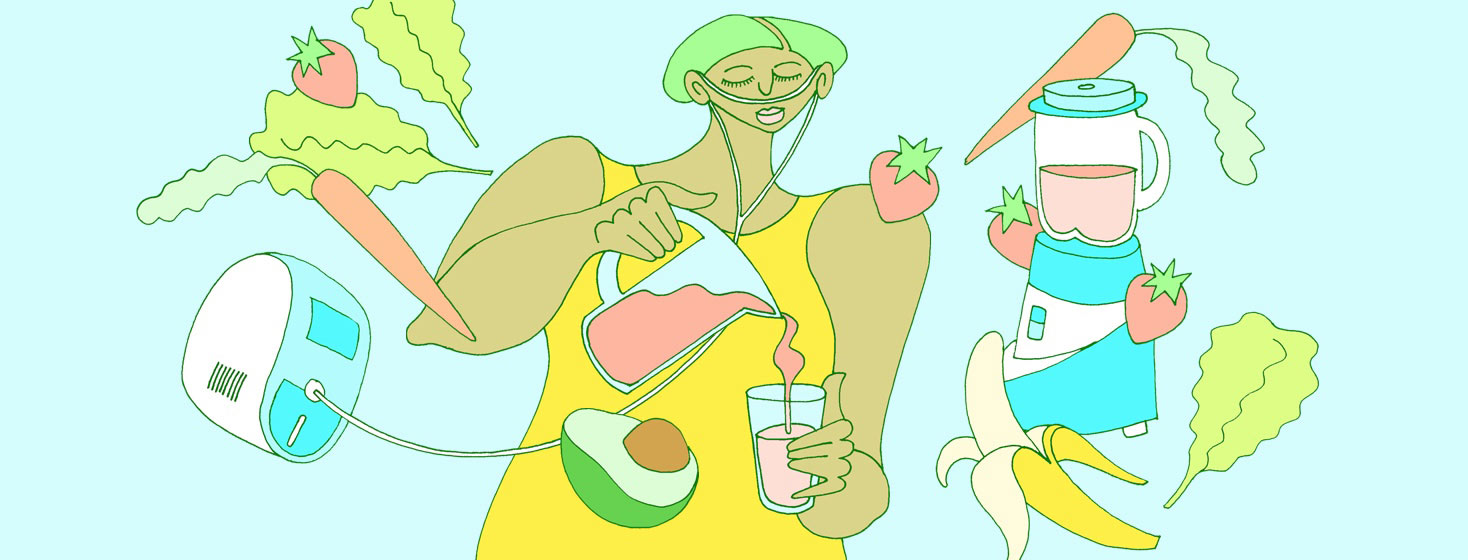What Can I Eat?
It never occurred to me when I was diagnosed with COPD how much it would affect my diet and eating habits. I have been lucky in that I don’t have food allergies, and I enjoy most foods. For a few years, what or how much I ate didn’t seem to bother me. Gradually, I noticed getting more shortness of breath after dinner, along with feeling bloated.
Carbohydrates
I love carbs! Is there anyone that doesn’t? Rice, pasta, bread - they are my favorites. How many of us go to Italian restaurants for dinner eat a big plate of spaghetti and a plate of Italian bread and butter? If I do that now, I will not be able to breathe well for the remainder of the day. Imagine my dismay at discovering carbohydrates are not our friend. What? How dare they?
According to the Cleveland Clinic, "Metabolism of carbohydrates produces the most carbon dioxide for the amount of oxygen used; metabolism of fat produces the least. For some people with COPD, eating a diet with fewer carbohydrates and more fat helps them breathe easier.”1
What foods and how much?
I began lowering my carbohydrate intake and reading labels. I am diabetic so I am used to tracking them, but I became more aware of which foods affected my breathing and which didn’t. Some foods cause more gas, and gas seemed to be getting trapped more, causing pain around the ribs. Keeping a food journal helped me learn what to avoid and what to cut back on. Our bodies are all different, so are our digestive systems. Some foods that can cause gas and bloat are carbonated beverages, foods that are spicy or fried, heavy cream sauces, broccoli, cabbage, Brussels sprouts, legumes, and onions. Some of these may not bother you, and there may be others that do.
The Cleveland Clinic suggests the following for eating:1
- Eat slowly
- Take small bites
- Chew your food
- Eat small meals
- Drinking at the end of meals
- Eat while sitting up
- Don't talk while eating - focus on one thing at a time
Weight fluctuation and food
If you are trying to gain weight, eat higher-calorie meals or snacks. Peanut butter, yogurt with granola, puddings or custard, and smoothies with fruits and ice cream. A smoothie made from one cup of whole milk, one envelope of breakfast drink, and a scoop of ice cream are delicious.
If you are trying to lose weight like I am, then watching calorie intake is important. I use a peddler for exercise three to four times per week, and it shows me the calories burned. That’s always fun to see!
Eat a healthy diet
The important thing is to eat a healthy diet. Eat lean protein, vegetables, and whole grains for fiber. Read labels for proper serving sizes when counting calories, fats, or carbohydrates. Some of you might have dietary restrictions that must be followed. Learn what foods work best for you.
What is most difficult for you concerning food and COPD? Do you have restrictions or keep a food diary? I would love to hear from the community on this topic.
Editor's Note: We are heartbroken to share that Carol passed away in February of 2022. Carol's storytelling and advocacy will be deeply missed, but her legacy lives on through her articles and in all the people she inspired.

Join the conversation